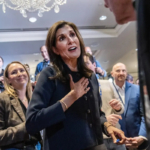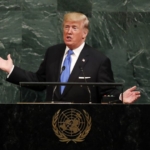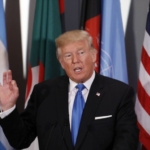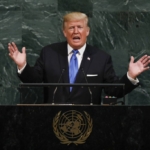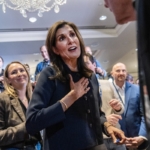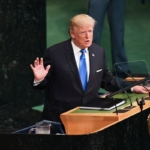On the 8th of November the American people elected the republican Donald Trump as the next President of the United States. However, the election results took almost everyone by surprise. In fact, the victory of Donald Trump was absolutely unexpected, mainly because of the polls that had predicted the success of Hillary Clinton. In any case, the election results show a deeply divided country between two completely different visions of America and opposite ideas of the US role on the international stage. In order to understand why Americans elected Donald Trump in spite of predictions, it will be useful to examine his domestic policy proposals as well as his foreign policy goals.
Donald Trump’s domestic policy can be summarized by the slogan “Make America great again”. He ran his campaign focusing on the American working class and emphasizing the idea that America has a great potential that has not been put into practice so far. The reasons, according to Trump, can be found in an excessive privilege of the financial economy at the expense of real economy. Real economy boosts the economic growth and makes it possible to achieve prosperity, while financial economy is considered responsible for the housing bubble, burst in 2007. Trump referred to his sustainers as a great movement willing to change America. His rhetoric has been considered as populism by a large part of the country, but the majority of the population saw in it a way to feel they had the power to change the direction of America. According to some experts the voters took a stand against the establishment. The refusal of the traditional political class is not something isolated in the international stage as we could see in June the Brexit referendum, as well as the recent electoral results in many European countries. The main tools to make America great again, in Trump’s opinion, are a tax cut for companies, more restrictive rules on migration and inflexible laws for criminals and terrorists. The tax cut is thought to sustain the economic growth by helping companies to remain in the US instead of delocalizing their production abroad. Trump’s position on migration has been largely criticized, because he proposed to build up a wall at the Mexican border and to expel all irregular foreigners living in the US. Finally, his position about criminals and terrorists has been considered racist by a large part of the US citizens. In particular, he proposed to introduce strict laws to solve the racial issue in the US, but this kind of measure alarmed the Afro-American population that has been protagonist of many protests during the last year, because they feel discriminated by the police. The rigidity of Donald Trump about the race issue is going to cause even more friction between the government and the Afro-American communities in the country.
Let’s now focus on Donald Trump’s foreign policy. His project can be identified by the word “isolationism”. As regards the economic relations with other countries he would like to introduce protectionist measures, because he thinks that the economic problems of the US are mainly due to the globalization process. This is not an isolated position if we look at the United Kingdom which will probably get out of the EU single market. The idea of focusing on America’s problems rather than carrying out military interventions worldwide is the argument that convinced voters. Americans do not understand the reasons of the great involvement of the US in the Middle East as well as in other parts of the world, as they are not achieving any advantage from that interventions. Trump argued, during his campaign, that the US should spend less money on NATO and interventions abroad, giving more military independence to their allies and using all the money to improve Americans’ standard of life. This isolationism in foreign policy leads to some important consequences. Firstly, the relations with the EU is going to change, in the military field as well as in the economic sector. In fact, Trump expressed his opposition to the Trans-Atlantic Trade and Investment Partnership which should be signed by the US and the EU. Nevertheless, the most important change in international relations would be a change of attitude towards Russia. For his part, President Putin expressed his willing to restore peaceful relations with the US. The main consequence of a reconciliation between the US and Russia would possibly be an agreement on the Syrian and Ukrainian crises. The stabilization of the Middle East as well as the solution of the Ukrainian crisis would remove the threat of a direct confrontation between Russia and the US. On the other hand, the future relations with China are uncertain. Trump made some declarations against China’s economic strategy and he expressed the will to be economically more independent from China. However, we should bear in mind that China possesses the major part of US external debt. Another aspect of Trump’s foreign policy, which would affect the entire world, is whether he will decide to respect or not the agreement on climate change negotiated in Paris the last year and entered into force few days ago. Finally, it is not clear if Trump will continue the reconciliation with Iran, and if he would respect the nuclear deal with that country.
In conclusion, it is too soon to make predictions about how America and its relations with the rest of the world will change. It mainly depends on whether Trump will respect his electoral program or not. According to his first public declarations he is probably going to moderate some points of his electoral program (in particular his positions about race, gays, Muslims etc. ). Trump announced his will to cooperate with Obama’s administration in order to preserve the most important achievements that have been reached over the last 8 years. Obama, for his part, expressed his support to the new President in order to allow him to succeed in his mandate.

